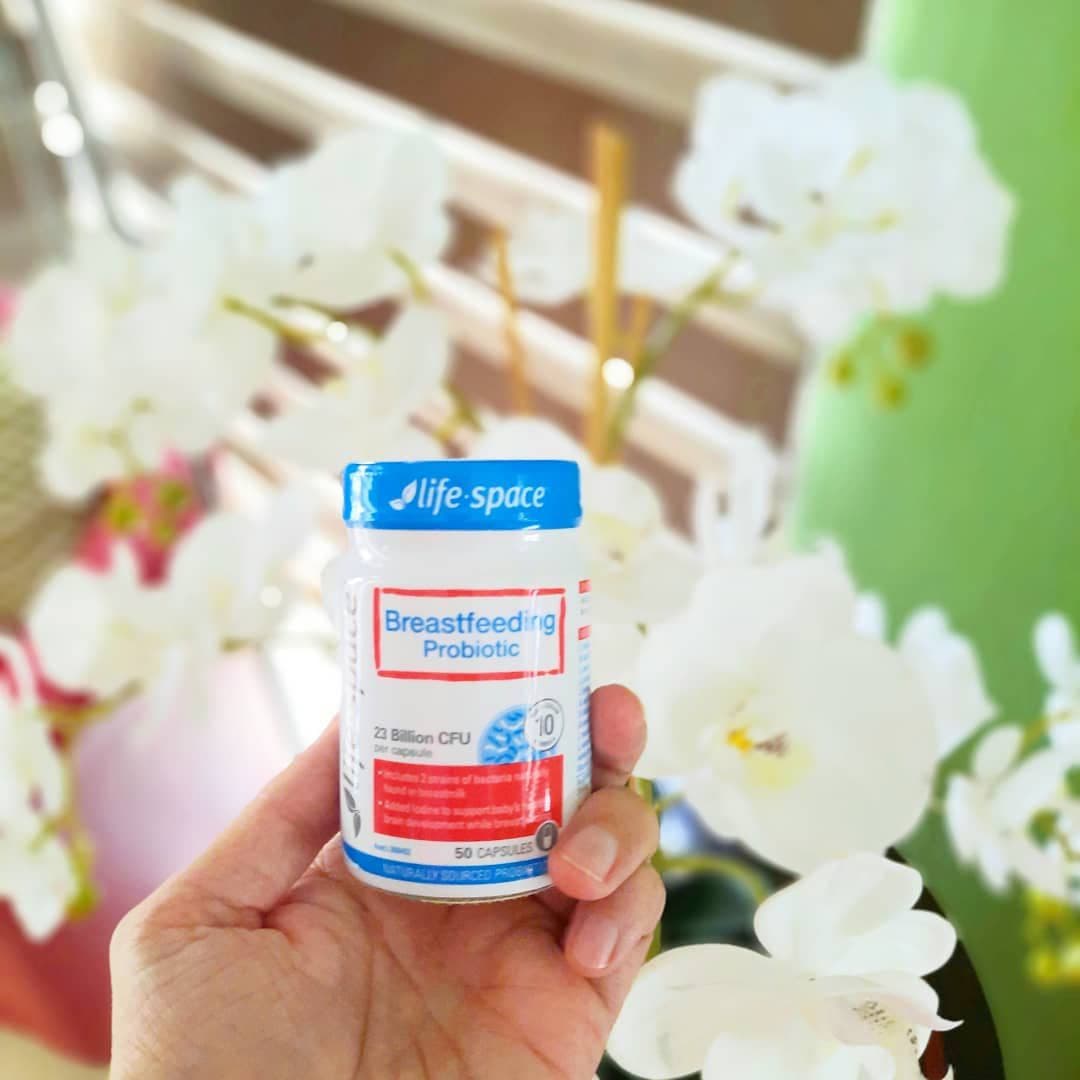Details
Life-Space Probiotic Breastfeeding is a multi-strain probiotic formula containing 4 strains of beneficial bacteria plus Calcium and Vitamin D.
Specifically formulated to:
- Support general health and wellbeing while breastfeeding
- Support healthy growth and development in healthy breastfed infants
- Support bone health while breastfeeding
- Help reduce symptoms of mild mastitis while breastfeeding
HOW TO CONSUME
- Adults take a vegetarian capsule daily with water, or as directed by your health professional.
More Information
Life-Space Breastfeeding Probiotic Many women increase their dietary intake of iodine during breastfeeding or may take a supplement support their intake. Life-Space Breastfeeding Probiotic contains iodine to support a baby’s healthy brain development during breastfeeding. It includes ten probiotic strains, including two that are naturally found in breastmilk. It also contains Lactobacillus rhamnosus HN001, which may assist in reducing the risk of eczema in children with a family history, when taken during pregnancy, breastfeeding and in the first two years of life.
Size
50 Capsules
Size "2" clear hard vege capsule containing off-white/beige coloured free-flowing powder with coloured particles.
About Lifespace
BREASTFEEDING
Should you boost your iodine intake during breastfeeding? Consider foods that are rich in iodine
Iodine is an essential nutrient and your needs increase significantly during breastfeeding. So, then, how can you help meet these needs? There are certain hormones that are increased when you’re breastfeeding. Prolactin stimulates your milk supply, while breastfeeding and skin-to-skin cuddles with your baby stimulate the love hormone . These are the high-profile, ‘celebrity’ hormones of breastfeeding. But plugging away behind the scenes are your hard-working thyroid hormones which need iodine to help them function.
What is iodine?
Iodine is important for your baby’s healthy brain . It’s a nutrient that your body needs but can’t make, so therefore must be consumed as part of a healthy diet. Your thyroid gland, a small butterfly-shaped gland in your neck, takes in iodine from your food and converts it to the thyroid hormones T3 and T4.
How much iodine should you have?
The National Health and Medical Research Council recommends:
Who? Iodine range (micrograms per day)
Babies 0-6 months 90µg/day
Babies 7-12 months 110 µg/day
Women 150µg/day
Breastfeeding women 270 µg/day
Are you getting enough iodine?
According to the Australian Bureau of Statistics, over 60 per cent of Australian women of childbearing age have lower iodine levels than recommended during breastfeeding. Whilst food is the best source of nutrients, supplementation can help to boost intake of iodine to help meet requirements.
Reduced intake of iodine from food sources has re-emerged in recent years as the dairy industry phased out iodine-based cleaners and we all started eating less iodised salt. Since 2009, iodised salt has been added to Australia’s bread to boost iodine levels in the population. While most Australian adults are now getting enough iodine, certain groups are still more likely to have lower levels, including women aged 16-44 and people living in regional areas.
Sources of iodine
The ocean is well-stocked with iodine. Iodine-rich foods include oysters (there are 160 micrograms of iodine per 100g) and seaweed sushi (92 micrograms per 100g). Raw seafood and prepared sushi are also good sources of iodine for breastfeeding women, along with tinned salmon (60 micrograms per 100g) and bread made with iodised salt (46 micrograms per 100g). Cheese and eggs also contain some iodine. Salt’s popularity has declined due to concerns about high blood pressure and other health concerns. But, if you’re going to use salt, make sure it’s iodised so you get the benefit of the iodine.





























